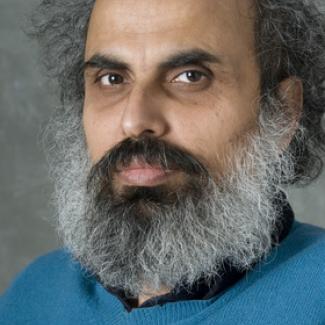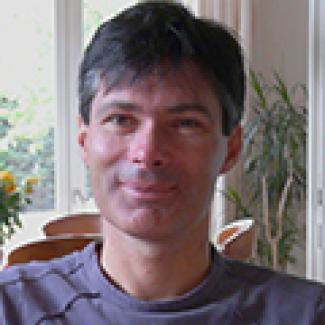
Geometric Complexity Theory seeks to address fundamental complexity lower bound questions such as P versus NP by means of algebraic geometry and representation theory. There has recently been a burst of activity in these areas that has revealed connections between the original program and other questions in complexity theory, as well as several longstanding open questions in representation theory and algebraic geometry. Orbit closure problems are of particular importance here. We understand this topic in a broad sense, so as to include algebraic complexity theory, holographic algorithms, algorithms in number theory and arithmetic geometry, complexity issues in computer algebra, and a wide range of geometric and explicit approaches towards the permanent versus determinant problem and the complexity of matrix multiplication.
Enquiries may be sent to the organizers at this address.
Hirotachi Abo (University of Idaho), Saugata Basu (Purdue University), Markus Bläser (Universität des Saarlandes), Jonah Blasiak (Drexel University), Grigoriy Blekherman (Georgia Institute of Technology), Paul Breiding (Technische Universität Berlin), Peter Bürgisser (Technische Universität Berlin), Jin-Yi Cai (University of Wisconsin-Madison), Melody Chan (Harvard University), Matthias Christandl (University of Copenhagen), Jan Draisma (Technische Universiteit Eindhoven), Klim Efremenko (University of Chicago), David Eisenbud (Mathematical Sciences Research Institute), Cameron Farnsworth (Texas A&M University), Michael Forbes (Massachusetts Institute of Technology), Fulvio Gesmundo (Texas A&M University), Elizabeth Gross (San Jose State University), Yonghui Guan (Texas A&M University), Jonathan Hauenstein (University of Notre Dame), María Isabel Herrero (Universidad de Buenos Aires), Serkan Hosten (San Francisco State University), Jesko Hüttenhain (Technische Universität Berlin), Christian Ikenmeyer (Texas A&M University), Nathan Ilten (Simon Fraser University), Erich Kaltofen (North Carolina State University), Neeraj Kayal (Microsoft Research India), Gregor Kemper (Technische Universität München), Kaie Kubjas (Aalto University), Shrawan Kumar (University of North Carolina at Chapel Hill), Mario Kummer (Universität Konstanz), Joseph Landsberg (Texas A&M University), Wei Li (Academy of Mathematics and Systems Science, Chinese Academy of Sciences), Lek-Heng Lim (University of Chicago), Ricky Liu (University of Michigan), Pinyan Lu (Microsoft Research), Gregorio Malajovich (Universidade Federal do Rio de Janeiro), Laurent Manivel (University of Montreal), Dhagash Mehta (North Carolina State University), Mateusz Michalek (Polish Academy of Sciences), Ketan Mulmuley (University of Chicago), Simone Naldi (CNRS - Toulouse), Matthew Niemerg (Colorado State University), Luke Oeding (Auburn University), Giorgio Ottaviani (Università di Firenze), Greta Panova (University of Pennsylvania), Pablo Parrilo (Massachusetts Institute of Technology), Vladimir Popov (Russian Academy of Sciences), Youming Qiao (University of Technology, Sydney), Nicolas Ressayre (Université Claude Bernard Lyon), Jose Rodriguez (University of Notre Dame), Zvi Rosen (UC Berkeley), Benjamin Rossman (National Institute of Informatics), Marie-Françoise Roy (Universite de Rennes), Steven Sam (UC Berkeley), Rahul Santhanam (University of Edinburgh), Michael Shub (City University of New York), Frank Sottile (Texas A&M University), Bernd Sturmfels (UC Berkeley), Madhu Sudan (Microsoft Research New England), Chris Umans (California Institute of Technology), Ernesto Vallejo (Universidad Nacional Autónoma de México), Cynthia Vinzant (University of Michigan), Jerzy Weyman (University of Connecticut), Avi Wigderson (Institute for Advanced Study, Princeton), Ryan Williams (Stanford University), Virginia Vassilevska Williams (Stanford University).





